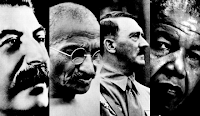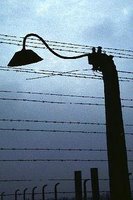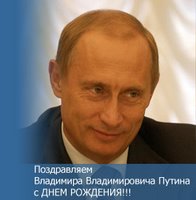 A spectre is haunting Eurasia - the spectre of activism. As cyberage sets in, the mentality of old Eurasia grapples to grasp the power of the people when politics enters a new age and arena. Is this truly the case or are we but suffering from the same delusions as we tend to when lured by novelties, choosing the complex over simplicity, iPhone and 3G over pencil and paper?
A spectre is haunting Eurasia - the spectre of activism. As cyberage sets in, the mentality of old Eurasia grapples to grasp the power of the people when politics enters a new age and arena. Is this truly the case or are we but suffering from the same delusions as we tend to when lured by novelties, choosing the complex over simplicity, iPhone and 3G over pencil and paper?Paraphrasing the 1848 Communist Manifesto may seem out of place addressing the dramatic changes that our Eurasian continent has undergone over the last decades. In essence though, it illustrates the difficulties of the old political and economic establishment to come to terms with new rules of the game, where citizens enjoy and use ever expanding tools of empowerment, where the Great Communicator is not necessarily the President, but the People. It is a transformation from "we are the people" to "who are the people?".
What this people is, still remains to be determined. Is it a demos - people - without krateion - rule? An unruly crowd with its own heterogeneous interests that only seldom forms into a concrete political agenda, but still looms large influencing and potentially discapacitating policy goals and implementation of elected officials? Is it an anonymous and shrouded rule that manages both people and politicians with no saying who is in charge?
 198 methods of nonviolent action is a "dummies' guide to revolution," applied to all popular uprisings forming a tattered trace of coloured revolutions in Eastern Europe over the last decade: Slovakia, Croatia, Serbia, Georgia, Ukraine... Today, such approaches for achieving peaceful change are so integrated in our mindset of popular action, that we seldom stop to reflect upon if they are righteous or represent the will of the people. Furthermore, the very same mechanisms have found their way into Internet activism, as Gandhi goes web 2.0, as the Mandelas and Sakharovs of our age increasingly turn up from out of cyberspace.
198 methods of nonviolent action is a "dummies' guide to revolution," applied to all popular uprisings forming a tattered trace of coloured revolutions in Eastern Europe over the last decade: Slovakia, Croatia, Serbia, Georgia, Ukraine... Today, such approaches for achieving peaceful change are so integrated in our mindset of popular action, that we seldom stop to reflect upon if they are righteous or represent the will of the people. Furthermore, the very same mechanisms have found their way into Internet activism, as Gandhi goes web 2.0, as the Mandelas and Sakharovs of our age increasingly turn up from out of cyberspace.We take these thruths to be self-evident and hail the principles and mechanisms of coloured revolution as singularly in the service of democracy. However, if we think revolution, we must also think reaction. Confronted by external change, Russia by no means was or could be ignorant of this, as stability was the name of the game both to preserve power and protect people from a return to the upheavals and chaos of the 1990s. Nashi became the recipe for reaction, to support and not subvert an authoritarian regime. As also Gargantua went web 2.0, we witnessed cyberwars waged against Estonia in 2007 and Georgia in 2008. This Russian experiment has now come to an end, and Nashi put in mothballs, as Kremlin seeks new venues of state-directed instead of state-inspired web activism.
Why? What have the Russians realized that the west fails to understand? The answer may be the difficulty of controlling the digital mob. As each and everyone can turn a cyberwarrior or warmonger on one's own, such spontaneity is destined to conflict with the interests of authoritarian government. Directing the webcrowds in the spirit of Gustave Le Bon has proven an overwhelming task in the 21st century, as rulers realize the risk of spiralling into new nights of broken glass. Whereas methods may work in concrete operative and tactical contexts - by blogs, twitter, and other social media - it has proven much more complex and difficult to achieve any strategic and tenuous goals.
The Georgian example also illustrates a paradox if regarded from the perspective of information operations, viz. info warfare. Whereas aerial superiority is deemed the key to victory in modern warfare, the winner may quickly turn loser in the information battlefield. The cyberattacks on Georgia in 2008 gave Russia near total dominance in the information field. However, it also raised the temperature of the Russian information flow for it to boil over into increasingly unreasonable and uncorroborated accusations of Georgian war crimes and even genocide on South Ossetians. In one blow, Russia lost its credibility. At the same time, it gave the Georgian government an information monopoly to send its message, its truth, and its propaganda, as most alternative information sources had been taken out. The exception was bloggers, acting eyewitnesses directly from the hotbeds of battle.
So, have all the powers of old media and politics entered into a holy alliance to exorcise this spectre? Realising its potential, will social media be seen as a friend or foe by forces of traditional society? What it takes to turn the tide and surf the waves of Internet activism is a combination of factors: Understanding of areas, countries, or regions of concern with comprehension of mechanisms such as Gandhi goes web 2.0 and the digital mob. A growing but still too small number of journalists and politicians are getting the message and have started developing such competence, but in the heat of battle, during drastic developments, the question is if this competence may be applied to account for what goes on in the online political arena - with direct or indirect influence on the flow of events - and act or report accordingly.
As trivial a statement as it may seem, the Internet is what you make of it. Friend or foe dichotomies lead nowhere, and seeing Internet as a threat by repetitious rantings about cybercrime and pornography degrade the very thought of human interaction - whether on the web or in real life. Statements saying cybercrime exceeds international drugs' trade, or that a majority of Internet usage relates to pornography (in reality 10-25%), just bring out hysteria about something that for most people has no connection whatsoever to either crime or sex, but for whom interaction by social media has become a part of everyday life, including the potential to actively influence one's life and society by the use of the web.
For people, raising their voices and exerting influence, is not essentially a matter of being online or not. It is true, that social media facilitate social and political interaction, when applied to that purpose. Still, it is the same logics and tactics that are seen IRL political and societal interaction. Age-old methods of political action - whether Gandhi's application of ahimsa to non-violent change or Hitlerite seduction of the crowd inspired by Le Bon - are as integrated into web activism as they are into general political action. The choice - as always with phenomena rightly or wrongly deemed as new - stands between embracing or vilifying web activism. Is standing apart, studiously neutral, the road ahead when cyberspace - for good or evil - becomes but another arena for government of the people, by the people, for the people? Is it a choice between greater direct democracy or the digital mob, or will we simply have to live with both?













































